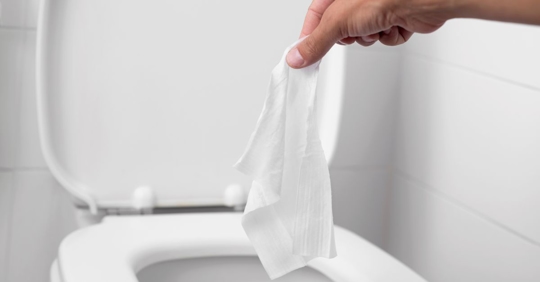Your toilet isn’t a catch-all for waste, but unfortunately, many people treat it that way. Flushing the wrong items can lead to expensive plumbing problems, environmental harm, and even damage to your entire sewage system. To keep your pipes flowing smoothly and avoid potential disasters, it’s essential to know what belongs in the toilet and what doesn’t.
Here’s a guide to help you understand what not to flush, why it matters, and how to dispose of common items the right way.
1. Avoid Flushing These Common Items
Even products labeled "flushable" can wreak havoc on your plumbing. Here’s a list of items that should never go down the toilet:
Wet Wipes
While marketed as flushable, wet wipes don’t break down like toilet paper. They can clog your pipes and contribute to fatbergs in municipal sewage systems.
Cotton Products
Cotton balls, pads, and swabs can absorb water and clump together, causing blockages within your pipes.
Feminine Hygiene Products
Tampons and sanitary pads are designed to absorb moisture, making them prone to swelling and obstructing your plumbing.
Paper Towels and Tissues
Unlike toilet paper, these products don’t dissolve in water as easily and can quickly clog your toilet.
Dental Floss
While it seems harmless, dental floss doesn’t break down and can wrap around other debris, creating a tangled mess in your pipes.
Grease and Oils
Though not an obvious candidate for flushing, some people pour cooking grease down the toilet. Grease solidifies in pipes, leading to blockages.
2. Why Flushing the Wrong Items Leads to Trouble
Flushing the wrong items down your toilet can cause problems both inside your home and beyond. Here are the potential consequences:
Plumbing Issues
When non-flushable items get stuck in your pipes, they can block the flow of water, leading to slow drains, backups, or even overflowing toilets. These clogs often require professional plumbing services to resolve.
Septic System Damage
If your home uses a septic system, non-biodegradable materials can fill your tank quickly and damage its operation. This results in costly repairs or replacements.
Environmental Impact
Flushing items that don’t biodegrade can harm the environment. These materials can end up in waterways, affecting aquatic life and contributing to pollution.
Sewage System Problems
Large-scale issues can arise when multiple households flush non-flushable items. Municipal sewage systems can face massive clogs and disruptions, costing cities thousands to fix.
3. Proper Disposal Tips
The best way to avoid plumbing disasters is to properly dispose of items. Here’s how:
Use a Trash Can
Keep a small trash bin in your bathroom for things like wipes, feminine products, and cotton items. This keeps non-flushables out of the toilet.
Recycle When Possible
Many household items, such as paper napkins or certain plastics, can be recycled instead of flushed. Check local recycling guidelines to see what’s accepted.
Dispose of Oils Safely
Pour cooking grease into a sealable container and throw it in the trash once it cools. Never pour it down the sink or toilet.
Compost When Appropriate
Compost yard waste, food scraps, and biodegradable materials instead of flushing or tossing them in the trash.
Contact the Experts at Atlas Plumbing
Avoiding plumbing disasters starts with knowing what not to flush down your toilet. However, even the most careful household can sometimes face unexpected plumbing issues. That’s where Atlas Plumbing comes in. Our experienced team is here to help with everything from unclogging drains to replacing damaged pipes.
If you’re dealing with a plumbing problem or want expert advice on keeping your system running smoothly, contact us today. At Atlas Plumbing, we’re just a call away from ensuring your home plumbing works safely and efficiently!

